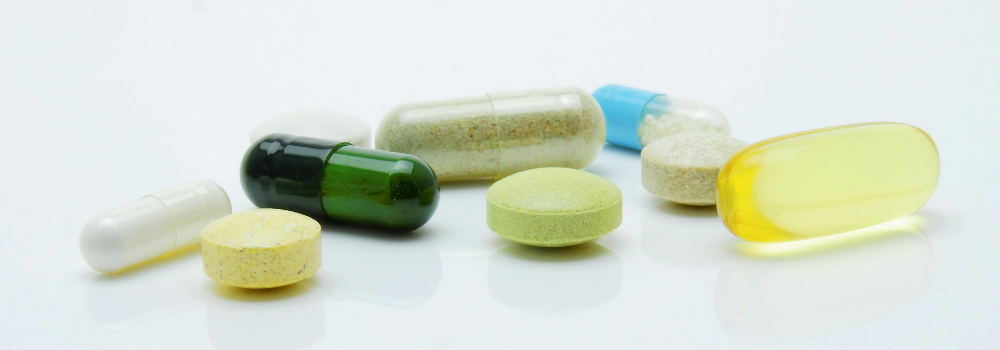Introduction | Why Supplementation Changes After 50
Turning 50 isn’t just a milestone. It marks a shift in how your body absorbs, utilizes and needs nutrients. While food remains the foundation of health, changes in digestion, metabolism, and lifestyle mean that strategically chosen supplements can help fill gaps and support vitality, strength and overall wellness. In this article we’ll explore which supplements tend to matter most for men over 50, how to approach them safely, and how they complement the strong nutrition and fitness habits you’re already building.
Understanding the Role of Supplements vs. Real Food
It’s important to be clear: supplements are not a shortcut to health. Experts emphasize that a nutrient-rich diet, exercise, sleep and lifestyle come first. That said, for men over 50, certain nutrients often fall behind due to changes in absorption or increased demand - and that’s where targeted supplementation can make sense. Quality matters: look for third-party tested products and always talk to your doctor before starting new supplements, especially if you’re on medications or managing health conditions.
Top Supplement Categories for Men Over 50
1. Vitamin D & Bone Health Support
Vitamin D is one of the most commonly deficient nutrients as we age. It plays a key role in bone health, immune system support, and muscle function. According to the National Institute on Aging, older adults may not absorb vitamin D as efficiently from sunlight and food.
What to check: A dose of 1,000-2,000 IU/day is typical, but your healthcare provider may recommend a blood test and personalized dose.
Why it matters: Supports bones, helps prevent fractures, and may aid muscle strength for men who are active after 50.
2. Vitamin B12 & Nervous System Support
As you age, your ability to absorb B12 from food may decline, especially if you take certain medications like proton-pump inhibitors. Many older adults are at risk of B12 deficiency which can affect energy, nerve health and cognition.
What to check: A B12 supplement (500-1,000 mcg monthly or smaller daily doses) or a formula designed for older adults.
Why it matters: Helps maintain energy, nerve function and may reduce risks linked with age-related nerve and blood issues.
3. Omega-3 Fatty Acids (EPA + DHA)
Omega-3s from fish oil or algae-based supplements support heart health, reduce inflammation and may assist brain and joint health. Older adults could benefit from these when dietary intake is insufficient.
What to check: Aim for ~1,000 mg combined EPA/DHA per day (or follow your practitioner’s advice). Choose a product with third-party testing for purity (no heavy-metal contamination).
Why it matters: Supports cardiovascular system, joints and may help recovery for men over 50 who are active.
4. Magnesium & Muscle / Sleep Support
Magnesium is critical for muscle recovery, sleep quality, and many metabolic functions. Many older adults don’t get enough from diet alone.
What to check: Forms like magnesium glycinate or citrate are better tolerated. A dose might range from 200–400 mg at night (check with your provider).
Why it matters: Enhances recovery, improves sleep (which is key for men over 50), and supports muscular and nerve health.
5. Targeted Support | Collagen, CoQ10 & Prostate Health
Collagen: Connective-tissue support is increasingly important as joints, tendons and skin change with age.
CoQ10: Especially relevant for men who take statins or who want heart/energy support.
Prostate-Support Compounds: Ingredients like saw palmetto or lycopene may have a place for men over 50 focused on prostate wellness.
Why they matter: These are more specialized supports - not foundational like vitamin D or omega-3 - but they may add incremental value when paired with a healthy diet and exercise routine.
How to Use Supplements Wisely | Key Principles
A. Personalize, Don’t Generalize
Your supplement needs depend on your diet, medications, health status and goals. A one-size-fits-all approach rarely works.
B. Quality & Testing Matter
Look for third-party certification (NSF, USP) and clear labeling. Supplements are less regulated than food.
C. Check for Interactions
Many men over 50 take medications—always review with your physician or pharmacist to avoid negative interactions (e.g., high vitamin E + blood thinners).
D. Use Supplements to Complement (Not Replace) Good Habits
Don’t expect pills to substitute for strong nutrition, movement or recovery. They support habits.
E. Track & Review Regularly
Periodically check nutrient levels (via blood work), review your supplement list and update as your needs evolve.
Conclusion | A Strategic Approach to Supplements After 50
For men over 50 who are committed to building strength, energy and longevity, supplements can play a valuable role, but only when used thoughtfully and strategically. Start with foundations like vitamin D, B12, omega-3s and magnesium; consider additional supports if you have specific needs; prioritize quality and safety; and always consult your healthcare provider.
At Everest Peak Wellness, we believe in smart, evidence-based habits that align with your fitness, nutrition and lifestyle goals. If you’re ready to plug the gaps and thrive in your next chapter, consider our plans built for men over 50. Because great years aren’t behind you - they’re ahead.
Everest Peak Wellness — Peak Living Starts Now.

